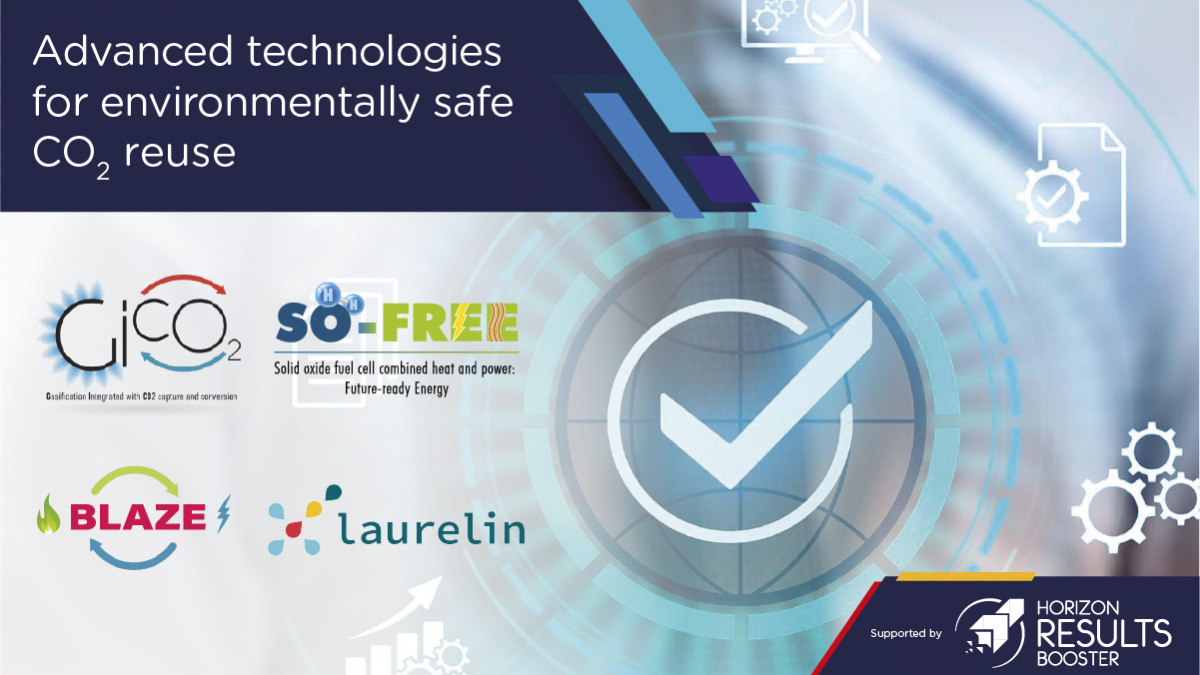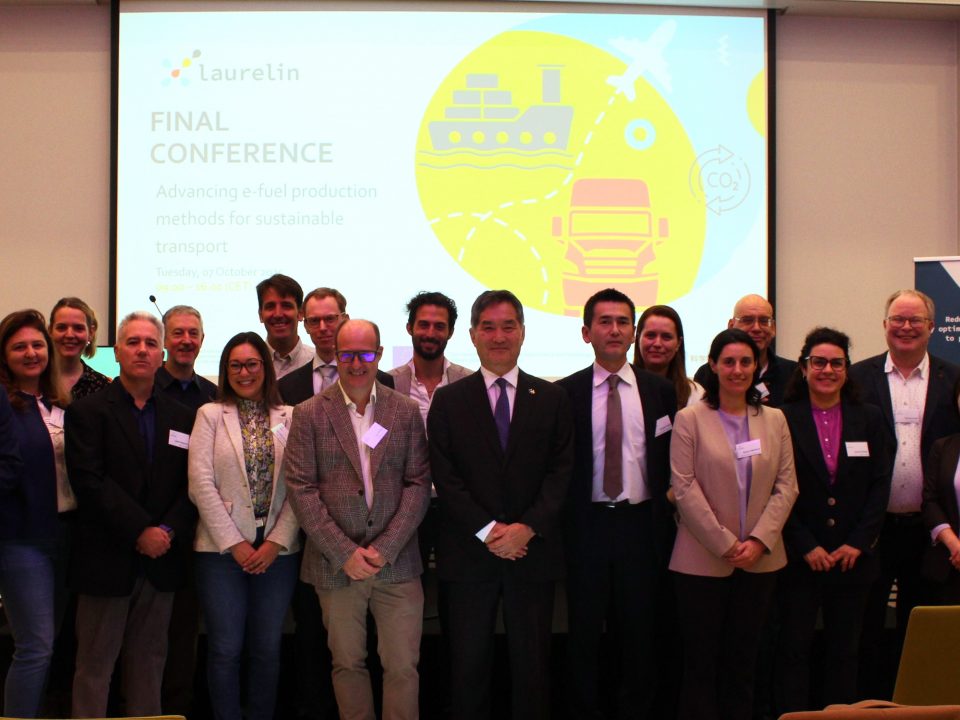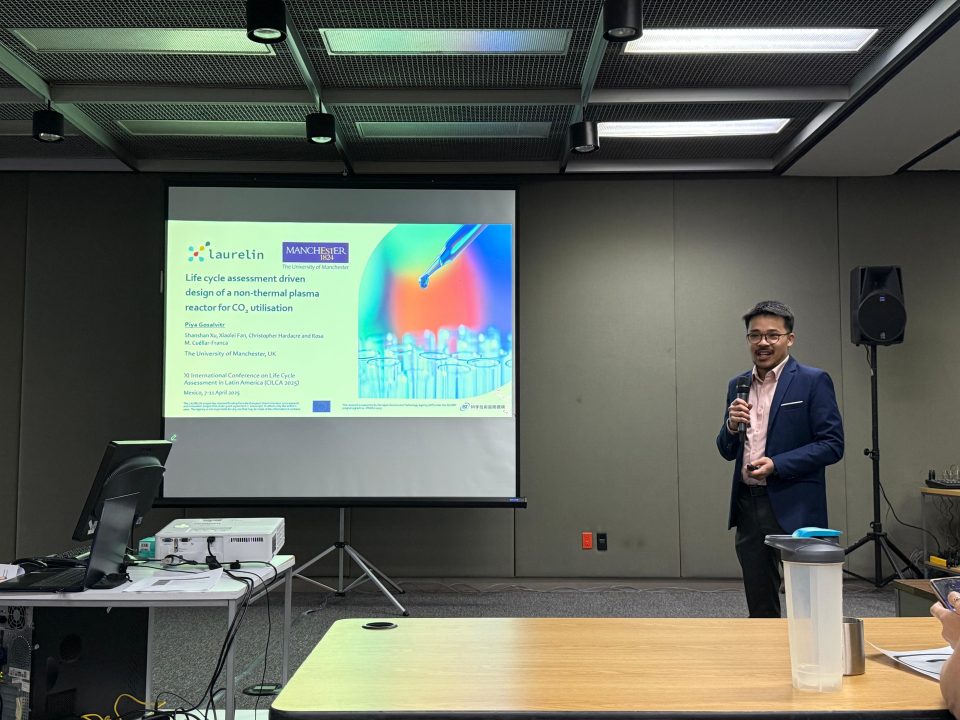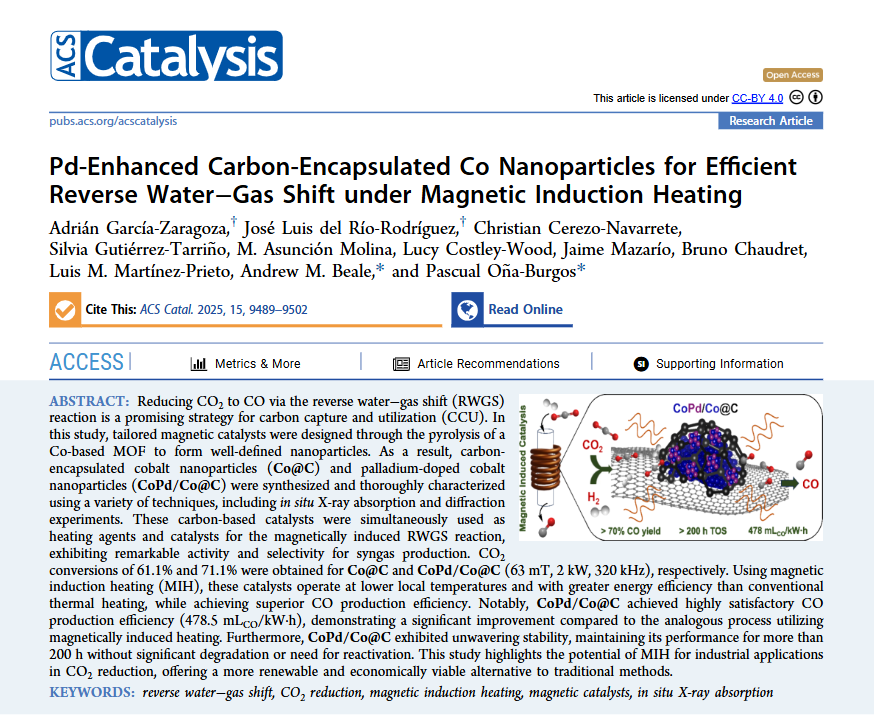European research projects coordinate to promote advanced technologies for environmentally safe CO2 reuse – JOINT PRESS RELEASE
As part of the EU Green Deal, the European Commission aims at fostering the continent’s transition to a reliable, affordable, publicly accepted, sustainable and competitive energy system, and decrease our dependence on fossil fuels.
Achieving these objectives requires a thorough transformation of the energy system, combining low carbon profile and the development of safe and affordable alternatives to fossil fuels, while reinforcing Europe’s economy.
Four European projects have joined forces through the EC-funded Horizon Results Booster initiative – GICO, SO-FREE, BLAZE and LAURELIN – and are responding to the need for environmentally safe technologies for innovative carbon capture, utilisation and storage (CCUS), and CO2 reuse technologies, working on larger scale, lower cost, and with higher conversion efficiency and higher availability.
Innovative solutions for CCUS in Europe
The projects in this group focus on innovative technologies to support capture and convert carbon for a range of different uses, such as the transport sector.
The projects offer relevant exploitable results, such as:
- Gasification Integrated with CO2 capture and conversion
- Solid Oxide Fuel Cell (SOFC) system for combined heat and power (CHP) generation
- Low cost, Advanced and Zero Emission first-of-a-kind small-to-medium Biomass CHP
- Advanced hydrogenation technologies
The modelling and experimental activities in GICO focus on a range of renewable energy technologies, developing an advanced, smart and flexible approach to convert bioenergy and electricity excess into biofuel and on-demand power production. The results will benefit developers, researchers and manufacturers, enabling them to understand the processes behaviour under different conditions and provide indications for future development and optimisation.
In SO-FREE, a prototype SOFC CHP system is being developed to obtain a high-efficiency energy conversion system operating flexibly with different gaseous vectors (natural gas, hydrogen or blends of the two gases). Considering the foreseen production of clean hydrogen from renewable energy sources this will drive towards the decarbonization of the energy sectors which cannot be directly electrified. Two SOFC short-stack designs have been tested at Laboratory scale under different scenarios and operating conditions which are sourced from the system level simulation of the integrated plant (including gas pre-processing and off-gas recirculation). Design engineering and procurement of the prototype are ongoing, with the development of two different system architectures to be optimised for each stack module although the global interchangeability concept is maintained in order to be able to switch the stacks in the system. In parallel, the prototype is being assessed for pre-certification and the business case of various end uses are being studied from a techno-economical perspective.
The CHP system developed in BLAZE, on the other hand, integrates technologies with proven performance and reliability: bubbling fluidised bed gasification, hot gas cleaning and conditioning, industrialised solid oxide fuel cells and off-gas recirculation.The project is demonstrating the potential of an integrated biomass gasifier and fuel cell CHP plant, as a cost-effective way to produce renewable electricity and heat from residual biomass.
The LAURELIN project works on the acceleration of production of renewable methanol for transport. Renewable methanol reduces carbon emissions by 65% to 95% depending on the feedstock and conversion process. This is one of the highest potential reductions of any fuel currently being developed. By deploying CCUS technologies, LAURELIN will help decarbonising energy-intensive sectors such as cement, lime, chemicals, steel and other metals or transportation (e.g. road, air, maritime).
The four projects are consolidating their networks to jointly disseminate their solutions, promoting the uptake of reliable CCUS technologies across different sectors, contributing to bringing forward sustainability.
About the projects
GICO www.gicoproject.eu
GICO aims to develop renewable energy technologies that will form the backbone of the EU energy system by 2030 and 2050.
SO-FREE www.so-free.eu
SO-FREE aims to develop a fully future-ready solid oxide fuel cell (SOFC)-based system for combined heat and power (CHP) generation
BLAZE www.blazeproject.eu
The project demonstrates the use of an integrated biomass gasifier and fuel cell CHP plant, as a cost-effective way to produce renewable electricity and heat from residual biomass.
LAURELIN laurelin.eu
The main objective is to achieve better selectivity, yield and energy requirements in methanol production from CO2 conversion.




